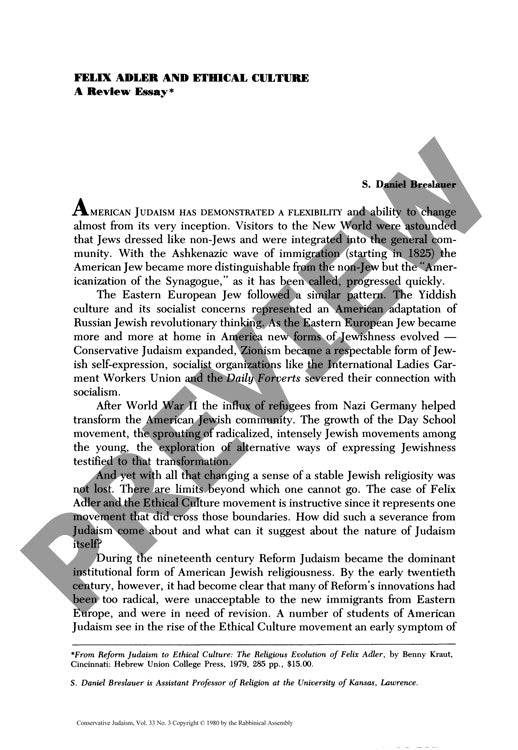Felix Adler and Ethical Culture a Review
Couldn't load pickup availability
Felix Adler's dramatic break from Reform Judaism to found the Ethical Culture Society in 1876 exposed the fundamental boundaries of Jewish religious identity in nineteenth-century America. Through a comparative theological analysis of Adler's philosophical evolution, three decisive departures emerge: his embrace of radical pluralism over monotheism, his refusal to reinterpret traditional texts, and his rejection of immortality in favor of an "essential self." While American Judaism has demonstrated remarkable adaptability, Adler's movement reveals through contrast the irreducible elements that define Jewish theological coherence: monotheistic unity, developmental continuity through reinterpretation, and the theological contingency of human existence upon divine power. Benny Kraut's biographical study of Adler, examined here through critical theological comparison with core Jewish principles, illuminates how the Ethical Culture movement, despite emerging from Reform Judaism, ultimately crossed beyond the limits of Jewish religious identity. This boundary-crossing helps map the essential characteristics that maintain Jewish theological integrity across its diverse expressions.

More Information
-
Physical Description
-
Publication Information
Published 1980
ISBN
-
Publication Credits
S Breslauer

